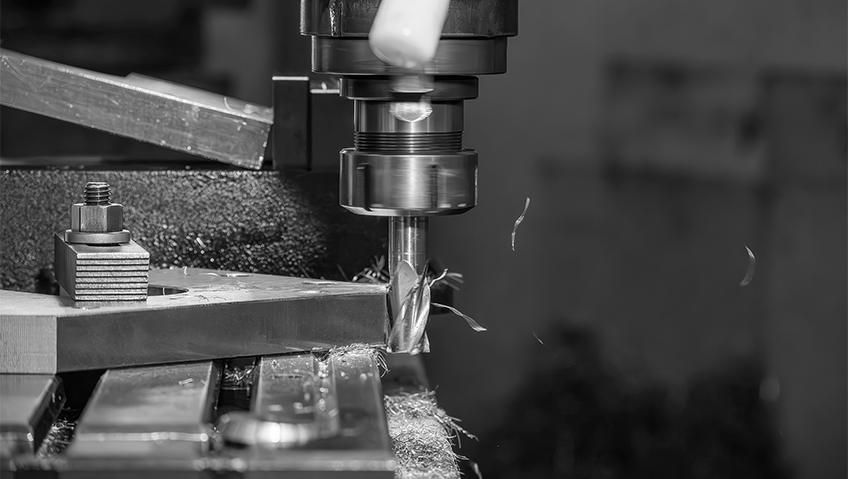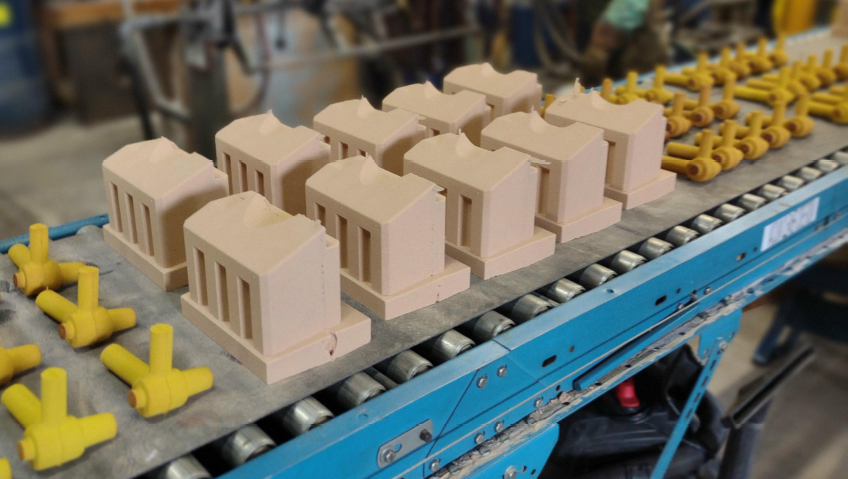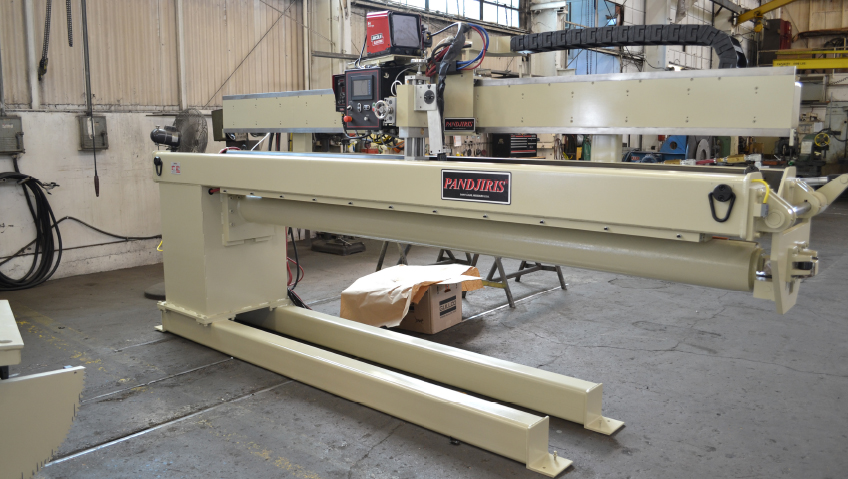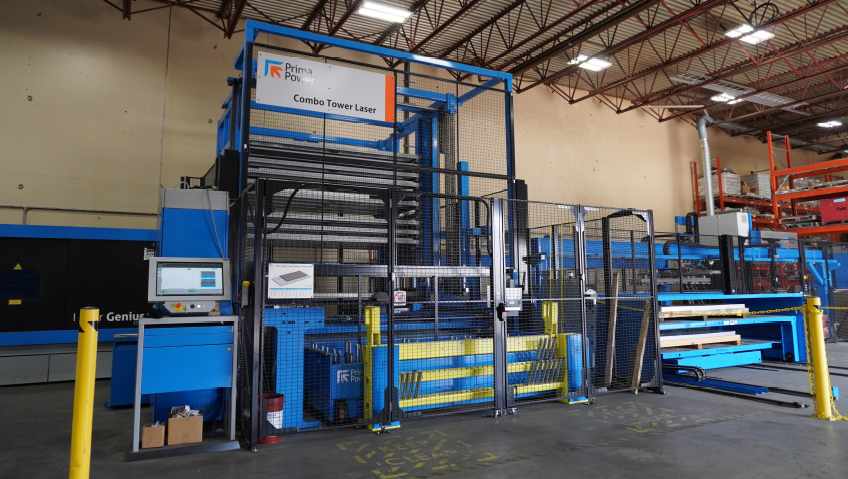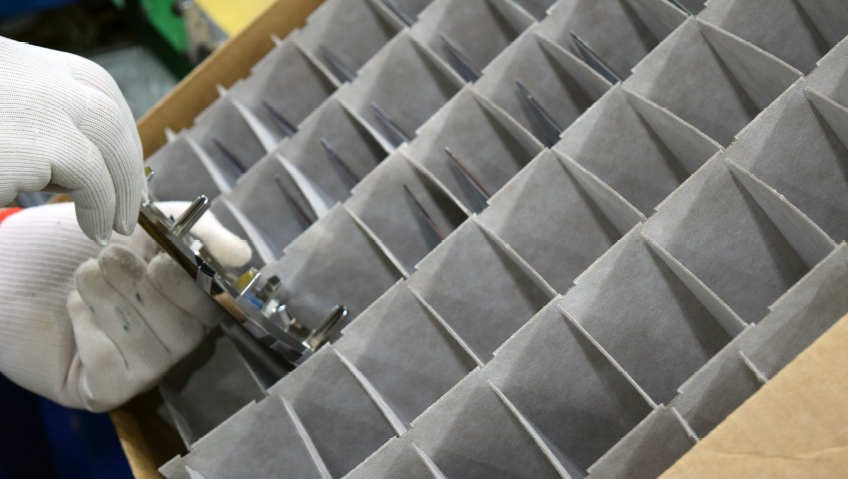For over 80 years, Peak Toolworks has made some of the best cutting tools in the business. Headquartered in Jasper, Indiana, with multiple locations across North America, this ISO 9001:2015 certified firm manufactures diamond and carbide tooling for the woodworking, metalworking, and plastics/composites/advanced materials markets.
While Peak’s tooling can boost the productivity of end users, the company views itself as far more than just a manufacturer; this team likes to forge close ties with customers and build partnerships that help them grow and prosper in their industry, offering everything from tooling audits to monitoring and managing customers’ tooling, both new and service tools.
“We’re not just here to sell you a blade. We want to know your needs. That means going into the plant, looking at your application, finding out where your bottlenecks are, what’s troubling you, then we begin to design and manufacture a custom tool. We’re customizing that tool to enhance or improve your operations, and by doing that, we’re basically improving your run times, lowering your scrap rate, reducing your downtime, and bringing you cost savings. We’re maximizing efficiencies at your shop, and delivering savings,” explains National Account Manager Ty Kabrick.
A network of sales leaders regularly meets with clients to deliver new tools, pick up existing tools for reconditioning, and troubleshoot, he continues. Sharpening and other reconditioning work is performed at one of the 10 service centers the company maintains in Canada and the United States. Peak also operates manufacturing facilities in both Jasper, Indiana and Marieville, Quebec, and keeps a large inventory of spare blades and tools on hand.
Woodworking tools—and, in particular, those for creating elements such as flooring, windows, doors, and cabinetry for the housing sector—account for roughly 70 percent of the company’s business, says Kabrick. Peak offers woodworking clients everything from saw blades to profiled tooling, router bits, sanding heads, band saws, along with the latest diamond tooling in the industry.
For metalworking, the company offers standard, custom, and cold-saw blades, band saws, and end-mills. Plastics/composites/advanced materials tooling includes panel machine blades and router bits, among other wares.
While Peak does stock off-the-shelf products such as end-mills, drills, and some blades, about 80 percent of its tooling is custom manufactured in-house, Kabrick estimates. The company describes itself as a one-stop shop capable of taking on all aspects of cutting tools, from design to manufacture and servicing.
“We have three different business sectors: new tool manufacturing; a service component or reconditioning; and resale and distribution. Each has its own place for our customers,” explains President and Chief Executive Officer Ron Bayus.
“One thing that separates us from the competition is our technical sales team [which has] a wealth of industry knowledge. One of the things I always like to say about Peak is that we’re not just a company that supplies products; we add value to our customers,” he says.
The other thing that is unique is that we have design engineers and an R&D applications specialist that will visit customers. They become an extension more or less of our customer’s technical team. It’s another value-add.”
Peak Toolworks traces its roots to 1941 when entrepreneur Arthur Segal founded North American Products (NAP), a company that designed and manufactured the first mechanically held, solid carbide blades for high-speed metal machining. At the time, the development of the new tool material known as Tungsten Carbide was at the leading edge of industrial technology and was of high importance for the nation’s war effort.
After the war, Arthur began experimenting with the design and manufacturing of tools for machining materials other than metals. This resulted in the development of the first Tungsten Carbide circular saw blade, a product which would rapidly replace the use of solid steel blades due to their long production runs and increased accuracy. “Segal developed the first carbide tip blade for cutting wood, hard plastics, and plastic laminates. He held patents on carbide tool designs now commonly used in the industry today.” Not one to rest on his laurels, Segal also wrote technical articles for various industry publications and gave presentations at numerous universities regarding the design, machining, and manufacturing of Tungsten Carbide cutting tools.
Over the years, the company developed more tooling, added services such as tool sharpening, and underwent name changes. In 2006, North American Products and Gladu joined forces. Gladu, a Canadian company, was on the cutting edge of development of specialty and diamond tooling for the woodworking industry. Gladu got its start back in 1969, launched by Jean Gladu in the basement of his home. Jean Gladu had grown the company similarly to the way Mr. Segal had to become one of the top tooling companies in Canada and well known in the states. This was the start of these two companies joining forces. This also opened the door for more growth and acquisition of other cutting-tool operations, including Drake, RKO Saw, Tooling Concepts, Riverside, and Ace Saw. The company eventually attracted private equity partners and adopted its current corporate name in 2018. Acquisitions have continued apace; in December 2022, Peak announced it had purchased Expert Die, Inc., a Dalton, Georgia company that sells blades and sharpens saws.
“We’re always in the market for acquisitions—anything that will complement our operations, adding processes or products that we currently don’t have. We’re also looking at expanding in different parts of the country where we see growth opportunities,” says Bayus.
He says the secret to Peak’s longevity can be summed up in two words: “our employees.” Approximately 30 percent of Peak’s staff has 20 or more years of experience, and some veteran employees have even been around for over 40 years, says Bayus. Such loyalty has provided the company with a sense of continuity while giving customers the benefit of deeply ingrained technical knowhow.
At present, Peak Toolworks has “just north of 350 employees,” roughly 50 to 60 of whom work as sales leaders out in the field, says Kabrick. “These guys manage the customer on a weekly basis with quality new tools and service. Our sales team has the DNA that has set us apart by making sure we are doing our best to take care of the customer. We have had several occasions where they have left their families on a holiday break, whether it was Thanksgiving or Christmas Eve, to make special trips to the customers to keep them up and running.”
Having passed the eight-decade mark, Peak Toolworks continues to embrace founder Segal’s forward-thinking, innovative ethos. The company uses cutting-edge machinery, software, and other solutions, and is constantly creating new tooling. “We’re looking at the most advanced technology in the industry, ensuring that we’re staying on top of it, not only for our business but for our customers, so that we can meet their growing needs,” says Bayus.
Company engineers and designers use Catia and AutoDesk—computer-aided design—to run simulations using 3D modeling software. Shop floor equipment includes automated four- and five-axis computer numerical control (CNC) machines. Five-axis CNCs are “pretty common in the cutting tool industry because of the complex geometries on the tooling. We have a large library of application data that we keep up to date as we run into new applications. It’s all built into a database where the designers will plug in application information and it will compute the correct saw or cutting tool recipe for the application,” explains Director of Engineering Brad Munch.
Peak also utilizes high-end Zoller inspection and measurement equipment for quality assurance. Zoller equipment helps the team “to really fine-tune [tools] and get a lot more precision as far as our measurements and calculations,” says Kabrick.
The company continues to devote time and resources to researching the possibilities of tungsten carbide, as well as polycrystalline diamond (PCD). The material is tough and highly abrasion-resistant, making it a popular choice for cutting tools. “The development of PCD diamond is really where we’ve put a lot of focus in the last 10 to 15 years,” notes Kabrick.
“We’ve got the largest service network for PCD diamond” in North America, adds Munch.
Industry patents are another point of pride. Peak has secured more than 30 patents for its tooling, the most recent of which concerns a feature on a product called the Endurance Diamond Finger Joint Tool, built with a proprietary PCD grade. The tool offers a speedy run rate, can cut all manner of solid woods, and was a finalist in the 2020 Challengers Award competition. The Challengers Awards are presented at the International Woodworking Fair (IWF), the largest trade show of its kind in North America.
While other firms also make finger joint tooling, Peak Toolworks received a patent for the “adjustability or the positioning of the insert knives,” in its Endurance Diamond Finger Joint Tool, says Bayus. He describes the product as “an extremely valuable tool for customers that has allowed them to increase production by having less downtime.”
The company promotes itself through its online presence and “boots on the ground” marketing, which involves trips to industry trade shows and other events, adds Kabrick. The firm attends “all the larger woodworking trade shows and a few of the metalworking trade shows as well,” he says. Last year, for example, Peak launched a product called the T-Slot planer head at the Association of Woodworking & Furnishings Suppliers (AWFS) trade show in Las Vegas.
Going forward, Bayus’ vision for the company is to be “the number one, go-to supplier for all your tooling needs.” Peak plans to achieve this status with its excellent tools and customer service, and by preserving the technical and institutional wisdom of longtime employees.
“We’re doing a lot of training where we’re looking to pass knowledge on from the experienced team we have to the new employees that we have coming into the business,” says Bayus. “We’re really looking to invest in our employees to lead us for the next 80 years.”

